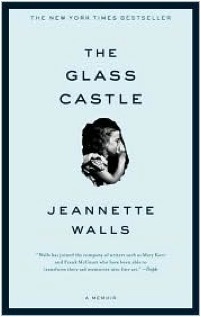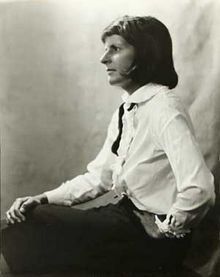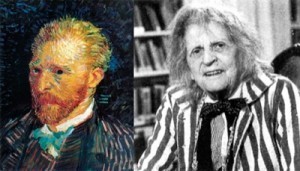Annette Mackey's Blog, page 6
January 23, 2012
The Glass Castle, by Jeannette Walls
 The Glass Castle, by Jeannette Walls is a compelling read. Normally when I become so engrossed in a book I give it an instant five stars. Not so with The Glass Castle. I'm giving it four stars. The writing itself is fantastic. Jeannette Walls is a top-notch writer who uses the first person flawlessly. Usually I get sick of all the, "I did this," and, "I did that." "I, I, I …" It's enough to make me crazy! But I didn't feel that way while reading The Glass Castle. The sentence structure is full of variation, and greatly refreshing. Jeannette Walls writes brilliantly. Period. She helps the reader understand the feelings of all her characters, not just the one. I'm an instant fan.
The Glass Castle, by Jeannette Walls is a compelling read. Normally when I become so engrossed in a book I give it an instant five stars. Not so with The Glass Castle. I'm giving it four stars. The writing itself is fantastic. Jeannette Walls is a top-notch writer who uses the first person flawlessly. Usually I get sick of all the, "I did this," and, "I did that." "I, I, I …" It's enough to make me crazy! But I didn't feel that way while reading The Glass Castle. The sentence structure is full of variation, and greatly refreshing. Jeannette Walls writes brilliantly. Period. She helps the reader understand the feelings of all her characters, not just the one. I'm an instant fan.
The main reason I didn't give this book five stars is because it is true. That said, had it been a work of fiction I would have tossed it by chapter two, telling my self, this junk just isn't plausible. And yet, it happened. The more I read, the more that fact bothered me. Jeannette and her siblings handled the situation amazingly well, but the parents … I couldn't get past them. It seems so wrong to reward that kind of thing with praise, even if it is a memoir. Had it not been for their kooky approach to life, there would not have been a reason to write the book. It's a circle I couldn't escape: I hate that it's true, yet it's so well written that I couldn't put it down. This tight knit family struggled desperately, but it didn't have to be that way. While it was obvious the parents loved their children, they were so absorbed in selfishness that their love was never realized. It never amounted to anything. The children were starving while the mother ate secret chocolate bars. The children had no clothes, no toilet, no warmth, no decent shelter, or food, while their father drank away every cent they had. When the kids earned money, the father stole it. When the kids found a diamond ring in the woods, and were going to sell it to buy food, the mother took it. After all, she deserved to wear nice things. The father even put his daughter in physical danger so that he could win a bet. These kids were eating out of the school garbage can. Jeannette's brother had to sleep with a raft over him because of the massive leak in the roof. When the children were in danger, the parents shrugged their shoulders. When the children were being sexually abused, the parents rationalized it away. After all, the abuser was only lonely, and children need to learn to handle those kinds of situations anyway. It made for shocking, riveting reading, but it also left me feeling warped.
So five stars to Jeannette for her amazing ability to write such a fluid narrative. Zero stars to the parents who made the story possible. Four stars to the book, with the rationalization that it probably should be five, but I just can't bring myself to do it.
January 10, 2012
The Stoning of the Organist
I have often laughed at this poem, and thought others might enjoy it too. I think only an organist can truly appreciate just how funny this really is. We're told by various congregation members, who are all talking about the same song, "That was too loud. It was too soft, too slow, too fast." Hahaha. Just makes me laugh. Especially the part about the variations. Just let me say this now … I'd love to throw in a lot more of that, but as written below, it just "confuseth" everyone.
Acts chapter 29 By Garrison Keillor.
1. And it came to pass, when Paul was in Corinth, he and certain disciples came upon a mob that was stoning an organist.
2. And Paul said unto them, "What then hath he done unto thee that his head should be bruised?"
3. And the people cried with one voice, "He hath played too loud!
4. Yea, in the singing of the psalms, he maketh our heads to ring as if they were beaten with hammers.
5. Behold, he sitteth up high in the loft, and mighty are the pipes and mighty is the noise thereof, and though there be few of us below, he none the less playeth with all the stops, the Assyrian trumpet stop and the stop of the ram's horn and the stop that soundeth like the sawing of stone, and we cannot hear the words that cometh out of our own mouths.
6. He always tosseth in variations that confuse us mightily and he playeth loud and discordant and always in a militant tempo, so that we have not time to breathe as we sing.
7. Lo, he is a plague upon the faith and should be chastised." Paul, hearing this, had himself picked up a small stone, and was about to cast it, but he set it down, and bade the organist come forward.
8. He was a narrow man, sallow of complexion, with dry skin, flaking and thin of hair.
9. And Paul said unto him, "Why hath thou so abused thy brethren?"
10. And the organist replied, "I could not hear them singing from where I sat, and therefore played the louder so as to encourage them."
11. And Paul turned round to the mob and said loudly, "Let him who has never played an organ cast the first stone."
12. And they cast stones for a while until their arms were tired and Paul bade the organist repent and he did.
13. And Paul said unto him, "Thou shalt take up the flute and play it for thirty days, to cleanse thy spirit," and afterward they returned to Corinth and sang psalms unaccompanied and then had coffee and were refreshed in the faith.
December 28, 2011
10 Factors that make for a great character
Voldemort. That is all it takes. Chances are, by reading that single name, the entire Harry Potter series comes to mind. Now think of Elizabeth and Mr. Darcy. Assuming you've read Pride and Prejudice, a whole new feeling registers. Characters and stories are so closely related that they are almost one and the same. This is why great characters are not only important; they are absolutely essential. Most writers understand this concept. The difficulty comes in implementing it. Let's start by looking at a few captivating characters.
Harry Potter: When we first meet Harry, we find that he is pretty average. There has never been anything special about him. Then, out of the blue,voila, we discover he is unique. He's the regular Joe turned superhero, and audiences love him.
Meet Skeeter from The Help, by Kathryn Stockett. Supposedly she is not pretty, though the movie character was gorgeous. She cares more about getting an education than finding a husband. To her mother's dismay, she does not care about her hair and would rather speak her mind than follow social cues. Though she is strong, she has had to move back home until she is able to land a serious job.
Scrooge, from Charles Dickens' The Christmas Carol, is the man we love to hate, until we start to feel sorry for him. He's stingy, mean, and sometimes downright cruel. As the tale progresses, we learn that he wasn't always like this, and by the end of the story everyone wants Scrooge to make good. We want him to take that leap of faith. Do a good turn. Buy the turkey in the window!
Captain Ahab, from Moby Dick, by Herman Melville: talk about trouble. Ahab has become engulfed in revenge. While he may seem ordinary at times, occasionally even kid, the vengeance in his heart is paramount. Everything else becomes secondary, even life. He is one of the most flawed characters ever hatched, and yet he has lasted one hundred and sixty years and counting.
So what do these characters have in common? Why do we love them?
They are relatable. Readers understand them because, to some degree or another, we have felt what they feel.
Great characters are always flawed. This is one of the most crucial areas of character development. Without flaws, characters do not seem real. They become hollow imitations of life, not tangible beings. Even Superman has weaknesses, and I'm not talking about Kryptonite. Supposedly he does not lie, yet his entire Clark Kent persona is a lie. He believes in being kind and courteous, while time after time leaving Lois Lane hanging. Talk about rude.
Great characters are different. They have qualities that make them unique within the stories they inhabit. Harry finds out he is a wizard. Elizabeth (Pride and Prejudice) is high-spirited, educated, smart, and yet blind as a bat. Cinderella loses her identity when her father dies, and regains it by taking on a secret identity. Edward (The Count of Monte Cristo) is loved by everyone except his best friend who throws him into prison for crimes he did not commit. THese are unusual scenarios with unique, strong characters who react in a timeless manner.
Most great characters have quirks: unique attributes or tics that either tickle or disgust us. Edward (The Count of Monte Cristo) twirls his hair. Skeeter (The Help) takes secret phone messages in the pantry so as to hide them from her mother. Bella (Twilight) is constantly tripping, falling, crashing, etc.
Great characters are strong. Throw out the flimsy people. Weak characters will not do except in supporting roles. Jimmy couldnever be Superman. It just wouldn't work. The main character must be able to carry the story, drive the plot, and grip the reader.
Great characters are likable. When characterizing a villain, remember that we want to love hating him/her. We want to enjoy how horrible the character is. We want to read the dirt and relish it! When characterizing a hero, readers want to see him/her rise above the conflict so that in the end, we can cheer ourselves silly.
Great characters grow . They must change, morph, and become more than they were. This is especially true when writing a series. Characters that stay the same do not seem real, and they are boring.
In a series, the backbone of a great character remains intact. Even though character development is crucial, the character's traits should remain solid. For example, Edward (Twilight) is a vampire. No amount of character development can or should change that. It is who he is. And beautifully enough, it is a flaw. The same principle should apply to character traits.
Great characters are written by authors who know them well; they know what he/she will do given any circumstance or condition.
Great characters are created from the heart. There is nothing more intriguing than an original character fresh from the ink, molded to life on the wings of imagination.
December 24, 2011
Happy Holidays
December 15, 2011
Come on over …
I'm guest posting this week on author Lia London's blog. Lia is a wonderful writing coach and her blog is filled with fabulous ideas. Her book, The Circle of Law, is a fantasy adventure novel with action you will want to see, characters you will want to know, and ideals you will want to live. — Happy Reading!
December 2, 2011
Silent Night
I wrote this arrangement back in 1993 when I was directing church choir. If anyone still has the old version, you may notice that I changed the key to make the arrangement more suitable for guitarists.
Sheet music: Silent Night SATB, Piano, Organ, optional Guitar PDF file.
November 28, 2011
Love Theme From "Class Collision"
I love writing music as much as I love writing books, and so it's no surprise that I would want to put the two together. The following is the love theme I wrote for my Class Collision series, and was arranged for intermediate pianists. I've included both an audio file and sheet music.
Audio file: Love Theme From "Class Collision," by Annette Mackey
Sheet music: Love Theme From Class Collision PDF Arranged for intermediate piano.
All music on this website was written by Annette Mackey, and may be downloaded or shared for noncommercial use. Copyright 2011 by Annette Mackey.
November 21, 2011
Poppyseed Spinach Salad
MmMm. This is probably my favorite salad, and it is soooooooooo easy. If you ask me, that's the way cooking should be: delicious without tremendous effort.
Poppyseed Spinach Salad
Collect ingredients and set them aside until you are ready to serve. Be sure to keep dressing refridgerated.
1–2 bags spinach, depending on the size of bag. You need enough to fill a medium size salad bowl.
1 large can mandrin oranges (or 2 smaller cans)
1 cup frozen/thawed or fresh rasberries (Although I must admit that I always add extra. They're just so stinking good!)
1 cup glazed walnuts/pecans– or glaze your own. See the simple recipe at the bottom of this post.
Litehouse brand FRESH Poppyseed Dressing. This can be found near the lettuce in the produce section of most grocery stores.
Just before serving, prepare salad as follows: Settle spinach in bowl. Coat with desired amount of Litehouse Poppyseed Dressing. I don't like it too thick so I use about 1/3 of a 12fl oz bottle. Drain mandrin oranges. Sprinkle oranges between layers of spinach, saving small amount to top as garnish. Do not toss salad or the oranges will end up on the bottom. Carefully sprinkle rasberries between layers of spinach, saving enough to top as garnish. Carefully sprinkle glazed walnuts between layers, saving enough to top as garnish. Garnish top with remaining oranges, rasberries and walnuts. If you used frozen/thawed rasberries, they will immediately start to mix with the dressing turning it a beautiful red-ish color. Love that! Serve immediately. Makes four large servings or six medium servings.
To glaze nuts
Preheat oven to 350. Cover cookie sheet with tinfoil, grease or spray foil so that nuts will not stick. (You don't really need the foil. It just makes clean-up faster) Place 2 cups walnuts or pecans in quart-size microwave safe dish. Add 1/4 cup water and 1/3 cup sugar. (May add up to 1/2 cup sugar for extra coating, which will make the nuts extra crunchy.) Heat in microwave for 1 minute. Stir. Heat again 1 minute. Stir. Heat again 1 minute. Stir. Repeat until 6 — 8 minutes of cooking has occurred, or sugar caramelizes. Empty nuts onto cooking sheet and spread them evenly. Bake 10 minutes or until nuts are crunchy.
I love this salad so much that I buy large quantities of rasberries when they are in season and freeze them. That way I can enjoy it all year long. By the way, I'm making this for my Thanksgiving Salad. It's so pretty too!
November 15, 2011
If you want to write …
[image error]If ever I had a book to share, it would be If You Want To Write, by Brenda Ueland. I read this book at a time when I was feeling self-conscious about letting people read my work, and I must say, it totally changed my perspective. From beginning to end you won't find a single page detailing gramar, punctuation, etc. For this isn't a book about editing. Instead, the focus is on the actual writing process: how to get your words flowing, keep it real, and make your story honest. Her advice is so real that it resonates deep down where your imagination lingers. Here are a few quotes that really got me going.
"Everybody is original, if he tells the truth, if he speaks from himself. But it must be from his true self and not from the self he thinks he should be." If You Want To Write, Chapter 1, p. 4
"Well, Van Gogh was one of the great painters. During his life he made only 109 dollars in all on his painting. They are now worth about two million dolars. He had a terribly hard life-loneliness, poverty and starvation that led to insanity. And yet it was one of the greatest lives
that was ever lived-the happiest, the most burningly incandescent." If You Want To Write, Chapter 3, p. 23. — I particularly enjoyed this chapter since Van Gogh is my all-time favorite artist. I sometimes wonder how sad it would be had the world missed out on his genius. Then I think of all the amazing composers I met while I was studying music composition in college. I know they probably won't ever make it big, but that doesn't mean their art isn't worth the effort.
Chapter 4 is entitled, "The Imagination Works Slowly and Quietly." This reminds me of the famous line, "you can't rush art." And, you can't. Sometimes you just need time to think it over. And over, and over again. There's nothing wrong with letting your mind play with an idea, try it on for size, then chuck or keep it depending upon what you finally decide. The point is, let it fester a while. This in no way negates the practice that sometimes you should just spill those words upon the page as fast as you can. Brainstorm in every way shape and form to find out what works best for you.
In Chapter 5 she talks about taking a walk. Can you see me smiling? Walking allowed her imagination to loosen, and once that happened free thought took place. It was during these walks that she came up with some of her best ideas. I can't tell you how much I related to this chapter, since I think brainstorming is absolutely crucial. Although I enjoy walking to, I prefer to brainstorm in the dark with absolute silence, and I do it every single night before I go to bed. Such simple technics can bring about so much productivity. Then she adds this thought so as to explain that pure imagination isn't something that requires painful work. "I tell you this so that you will stop thinking of the creative power as nervous and effortful; in fact, it can be frightened away by nervous straining." p. 47. Boy, isn't that the truth! In my opinion, allowing the mind to flow is the single best technic for creative writing.
 Chapter 7 was probably my favorite: "Be Careless! Be a Lion! Be a Pirate! When You Write." She continues, "People are too scared, too self-conscious, too proud, too shy. They have been taught too many things about construction, plot, unity, mass and coherence. (They write) to impress people." I couldn't agree more. That was my problem for years. I was way too self-conscious. It didn't really hinder my writing, because I chucked all those old novels in the trash, something that has me kicking myself now. "I just don't know if I can take that kind of rejection," said McFly in Back to the Future. Ah, who cares, is my tune now. I write because I want to write. You have to learn to say, this is my art. And as long as you are true to what you write, the beauty, or the horror as it may be, will shine through.
Chapter 7 was probably my favorite: "Be Careless! Be a Lion! Be a Pirate! When You Write." She continues, "People are too scared, too self-conscious, too proud, too shy. They have been taught too many things about construction, plot, unity, mass and coherence. (They write) to impress people." I couldn't agree more. That was my problem for years. I was way too self-conscious. It didn't really hinder my writing, because I chucked all those old novels in the trash, something that has me kicking myself now. "I just don't know if I can take that kind of rejection," said McFly in Back to the Future. Ah, who cares, is my tune now. I write because I want to write. You have to learn to say, this is my art. And as long as you are true to what you write, the beauty, or the horror as it may be, will shine through.
Chapter 10, entitled "Why Women Who Do Too Much Housework Should Neglect It for Their Writing," reminds me that Brenda Ueland lived in a different generation than my own. And still, one of my biggest hangups to writing are the household chores. Being a mother is huge, and I would never want to neglect any part of that awesome job. But the tedious work that goes with it can be so completely overwhelming. I would never get any writing done if I had to be the perfect housekeeper. That said, I took all day yesterday away from my computer so that I could scrub and clean everything. It's such a balancing act to work, be mom, and have a writing career on the side. Yikes! There's no way I can get it all done. But that doesn't mean I'm not going to try! I'd be crazy to say, it's just too much, and throw my hands up in despair. Never. Keep going. Remember the Little Engine Who Could. (Another book. Thank you beautiful writers!)
Chapter 13, "The Third Dimension." Yes! This is where the meat is. "You must never be an advocate of you characters." p. 122. In other words, just tell the story. Tell it true to life, especially if you're writing fiction. Then in a footnote on p. 123, she adds, "That is why you must not try too hard to be honest, sincere, in your writing, for that too is a kind of falseness. Why you are honest there is no trying about it. You are just quietly honest, and that is all there is to it." Wow. What advice. So beautifully put, though sometimes very hard to implement, but absolutely vital in crafting a novel.
Chapter 15, p. 137, "Don't be afraid of writing bad, mawkish stories for that will show you many things about yourself .… If you write a bad story, the way to make it better is to write three more. Then look at the first one. You will have grown in understanding, in honesty. You will know what to do to it. And to yourself."
November 4, 2011
Twitter Hashtags Explained
New to Twitter and hashtags have you scratching your head? Don't worry. It's really very simple. Hashtags begin with #. That's all there is to it. On Twitter any hashtag can be searched making this a wonderful resource when you are looking for information or wanting to share something. Here are a few basic examples.
#SO — Meaning Shout Out. In other words, people use this hashtag to bring attention to someone or something.
#WW — Wonderful Writer or Wednesday Writer.
#amwriting — Helping writers connect.
#amreading — A way for readers to connect.
#FF — Friday Follow, which is a way to share your favorite tweeters.
Obviously, the possibilities are endless. You can even make them up. For more information, or to clarify a specific hashtag go to the official hashtag site.





